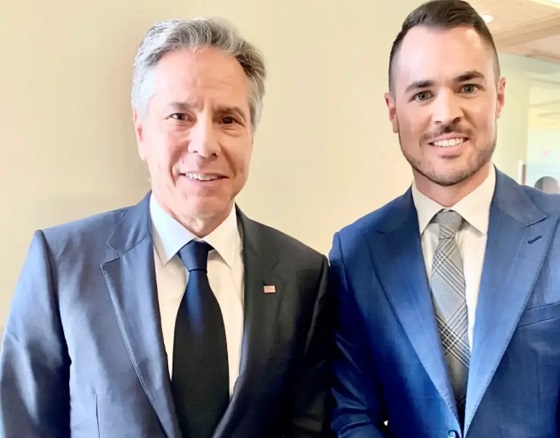Uncategorized
Oil producers join forces and cut production again

VIENNA — Oil prices spiked sharply higher Friday as major oil producers, including the OPEC cartel, agreed to cut global oil production by 1.2 million barrels a day to reduce oversupply.
Following two days of meetings, the Organization of the Petroleum Exporting Countries that includes the likes of Saudi Arabia and Iraq said they would cut 800,000 barrels per day for six months from January, though some countries such as Iran, which is facing wide-ranging sanctions from the United States, have been given an exemption.
The balance will come from Russia and other non-OPEC countries. The United States, one of the world’s biggest producers, is not part of the deal.
“This is a major step forward,” said United Arab Emirates’ Energy Minister Suhail Mohamed al-Mazrouei, who chairs the regular meetings in Vienna in his capacity as President of the OPEC Conference.
Oil producers have been under pressure to reduce production following a sharp fall in oil prices over the past couple of months. The price of oil has fallen about 25
The reduction has certainly met with the response hoped for by ministers as it was at the upper end of most predictions. Following the announcement, Brent crude, the international standard, was up $2.79 a barrel, or 4.7
Ann-Louise Hittle, a
“For most nations, self-interest ultimately prevails,” she said. “Saudi Arabia has a long-term goal of managing the oil market to avoid the sharp falls and spikes which hurt demand and the ability of the industry to develop supply. On top of this, Saudi Arabia also needs higher oil revenues to fund domestic Saudi spending.”
Russian Energy Minister Alexander Novak called the negotiations with the OPEC nations “fairly challenging” but said the decision “should help the market reach a balanced state.”
“I think this is a strong signal to anybody who has doubted it that our
OPEC’s reliance on non-members like Russia highlights the cartel’s waning influence in oil markets, which it had dominated for decades. The OPEC-Russia alliance was made necessary in 2016 to compete with the United States’ vastly increased production of oil in recent years. By some estimates, the U.S. this year became the world’s top crude producer.
The cut is unlikely to be greeted warmly by U.S. President Donald Trump, who has been pressuring the cartel publicly to maintain production. On Wednesday, he tweeted: “Hopefully OPEC will be keeping oil flows as is, not restricted. The World does not want to see, or need, higher oil prices!”
One stumbling block to an agreement had been Iran, Saudi Arabia’s regional rival and fellow OPEC member, which had been arguing for an exemption to any cuts because its crude exports are already being pinched already by U.S. sanctions.
Al-Mazrouei said that in the end Iran had been given an exemption, as well as Venezuela and Libya.
That “means that the percentage we will contribute among us is going to be a bit higher,” he said.
“We within OPEC are committed to distribute the 800 (thousand bpd) among us and deliver on it.”
___
Rising reported from Berlin
Anthony Mills, Kiyoko Metzler And David Rising, The Associated Press
Uncategorized
Cost of bureaucracy balloons 80 per cent in 10 years: Public Accounts

The cost of the bureaucracy increased by $6 billion last year, according to newly released numbers in Public Accounts disclosures. The Canadian Taxpayers Federation is calling on Prime Minister Mark Carney to immediately shrink the bureaucracy.
“The Public Accounts show the cost of the federal bureaucracy is out of control,” said Franco Terrazzano, CTF Federal Director. “Tinkering around the edges won’t cut it, Carney needs to take urgent action to shrink the bloated federal bureaucracy.”
The federal bureaucracy cost taxpayers $71.4 billion in 2024-25, according to the Public Accounts. The cost of the federal bureaucracy increased by $6 billion, or more than nine per cent, over the last year.
The federal bureaucracy cost taxpayers $39.6 billion in 2015-16, according to the Public Accounts. That means the cost of the federal bureaucracy increased 80 per cent over the last 10 years. The government added 99,000 extra bureaucrats between 2015-16 and 2024-25.
Half of Canadians say federal services have gotten worse since 2016, despite the massive increase in the federal bureaucracy, according to a Leger poll.
Not only has the size of the bureaucracy increased, the cost of consultants, contractors and outsourcing has increased as well. The government spent $23.1 billion on “professional and special services” last year, according to the Public Accounts. That’s an 11 per cent increase over the previous year. The government’s spending on professional and special services more than doubled since 2015-16.
“Taxpayers should not be paying way more for in-house government bureaucrats and way more for outside help,” Terrazzano said. “Mere promises to find minor savings in the federal bureaucracy won’t fix Canada’s finances.
“Taxpayers need Carney to take urgent action and significantly cut the number of bureaucrats now.”
Table: Cost of bureaucracy and professional and special services, Public Accounts
| Year | Bureaucracy | Professional and special services |
|
$71,369,677,000 |
$23,145,218,000 |
|
|
$65,326,643,000 |
$20,771,477,000 |
|
|
$56,467,851,000 |
$18,591,373,000 |
|
|
$60,676,243,000 |
$17,511,078,000 |
|
|
$52,984,272,000 |
$14,720,455,000 |
|
|
$46,349,166,000 |
$13,334,341,000 |
|
|
$46,131,628,000 |
$12,940,395,000 |
|
|
$45,262,821,000 |
$12,950,619,000 |
|
|
$38,909,594,000 |
$11,910,257,000 |
|
|
$39,616,656,000 |
$11,082,974,000 |
Uncategorized
Trump Admin Establishing Council To Make Buildings Beautiful Again


From the Daily Caller News Foundation
By Jason Hopkins
The Trump administration is creating a first-of-its-kind task force aimed at ushering in a new “Golden Age” of beautiful infrastructure across the U.S.
The Department of Transportation (DOT) will announce the establishment of the Beautifying Transportation Infrastructure Council (BTIC) on Thursday, the Daily Caller News Foundation exclusively learned. The BTIC seeks to advise Transportation Secretary Sean Duffy on design and policy ideas for key infrastructure projects, including highways, bridges and transit hubs.
“What happened to our country’s proud tradition of building great, big, beautiful things?” Duffy said in a statement shared with the DCNF. “It’s time the design for America’s latest infrastructure projects reflects our nation’s strength, pride, and promise.”
“We’re engaging the best and brightest minds in architectural design and engineering to make beautiful structures that move you and bring about a new Golden Age of Transportation,” Duffy continued.
Mini scoop – here is the DOT’s rollout of its Beautifying Transportation Infrastructure Council, which will be tasked with making our buildings beautiful again. pic.twitter.com/
9iV2xSxdJM — Jason Hopkins (@jasonhopkinsdc) October 23, 2025
The DOT is encouraging nominations of the country’s best architects, urban planners, artists and others to serve on the council, according to the department. While ensuring that efficiency and safety remain a top priority, the BTIC will provide guidance on projects that “enhance” public areas and develop aesthetic performance metrics.
The new council aligns with an executive order signed by President Donald Trump in August 2025 regarding infrastructure. The “Making Federal Architecture Beautiful Again” order calls for federal public buildings in the country to “respect regional architectural heritage” and aims to prevent federal construction projects from using modernist and brutalist architecture styles, instead returning to a classical style.
“The Founders, in line with great societies before them, attached great importance to Federal civic architecture,” Trump’s order stated. “They wanted America’s public buildings to inspire the American people and encourage civic virtue.”
“President George Washington and Secretary of State Thomas Jefferson consciously modeled the most important buildings in Washington, D.C., on the classical architecture of ancient Athens and Rome,” the order continued. “Because of their proven ability to meet these requirements, classical and traditional architecture are preferred modes of architectural design.”
The DOT invested millions in major infrastructure projects since Trump’s return to the White House. Duffy announced in August a $43 million transformation initiative of the New York Penn Station in New York City and in September unveiledmajor progress in the rehabilitation and modernization of Washington Union Station in Washington, D.C.
The BTIC will comprise up to 11 members who will serve two-year terms, with the chance to be reappointed, according to the DOT. The task force will meet biannually. The deadline for nominations will end Nov. 21.
-

 Alberta3 hours ago
Alberta3 hours agoFrom Underdog to Top Broodmare
-

 International1 day ago
International1 day agoAfghan Ex–CIA Partner Accused in D.C. National Guard Ambush
-

 Alberta1 day ago
Alberta1 day agoAlberta and Ottawa ink landmark energy agreement
-

 Crime2 days ago
Crime2 days agoFBI Seizes $13-Million Mercedes Unicorn From Ryan Wedding’s Narco Network
-

 Energy1 day ago
Energy1 day agoPoilievre says West Coast Pipeline MOU is no guarantee
-

 Crime2 days ago
Crime2 days agoB.C.’s First Money-Laundering Sentence in a Decade Exposes Gaps in Global Hub for Chinese Drug Cash
-

 International2 days ago
International2 days agoTrump orders 500 more troops to reinforce D.C. after Guard shooting
-

 Artificial Intelligence2 days ago
Artificial Intelligence2 days agoTrump’s New AI Focused ‘Manhattan Project’ Adds Pressure To Grid









